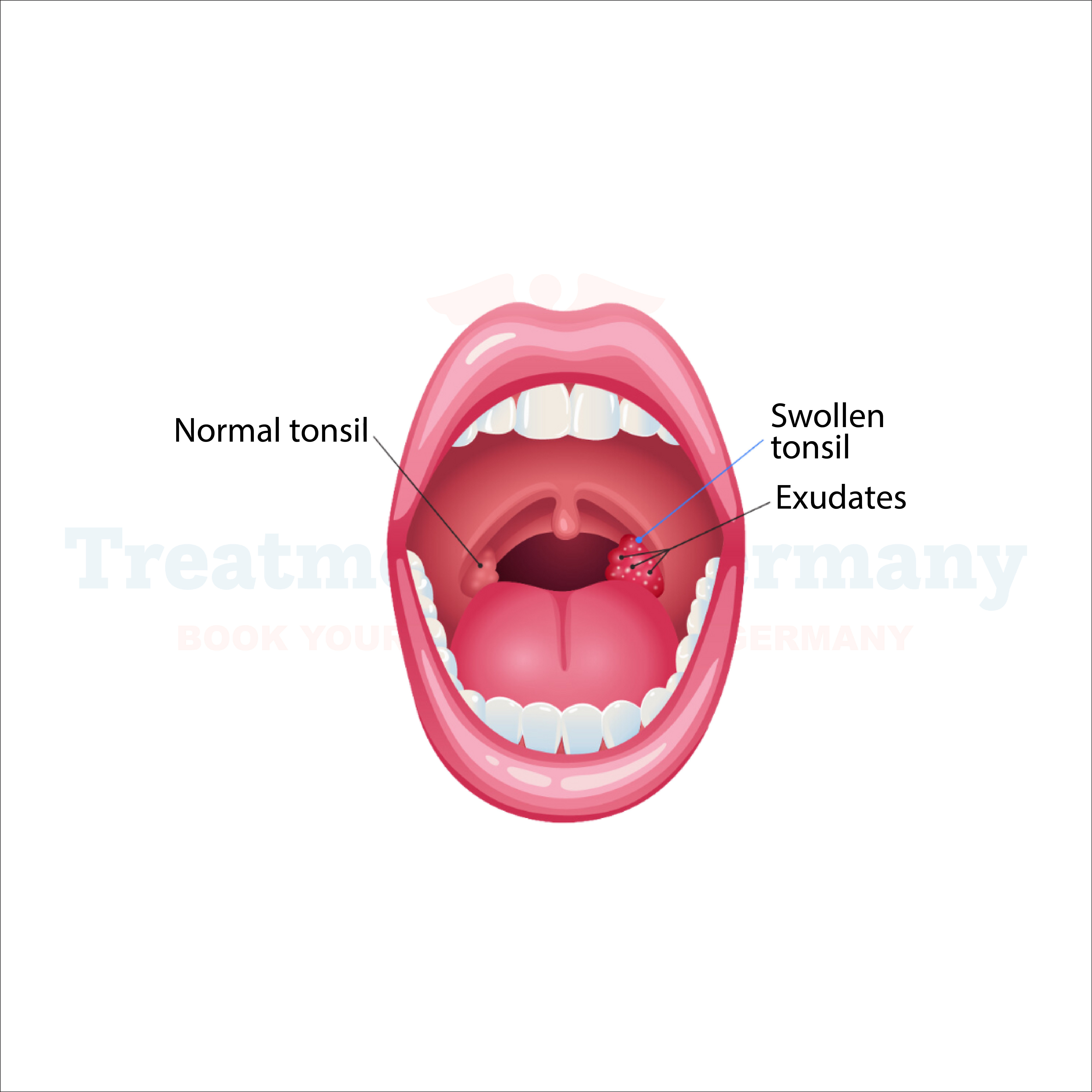What is Strep Throat (Streptococcal Pharyngitis):
Strep Throat, medically known as Streptococcal Pharyngitis, is a bacterial infection that affects the throat and tonsils. It is primarily caused by the group A Streptococcus bacteria and is highly contagious. Strep Throat typically presents with symptoms such as severe sore throat, difficulty swallowing, fever, swollen lymph nodes in the neck, and sometimes white patches or streaks of pus on the tonsils.
Side effects of Strep Throat (Streptococcal Pharyngitis):
If left untreated, Strep Throat can lead to several complications, including:
Prompt diagnosis and treatment are essential to prevent these complications and alleviate symptoms.
How is Strep Throat (Streptococcal Pharyngitis) diagnosed?
Diagnosing Strep Throat typically involves a combination of:
1. Physical Examination: Your healthcare provider will examine your throat for signs of inflammation, swollen tonsils, and the presence of white patches.
2. Throat Swab: A throat swab may be taken to collect a sample of throat secretions. This sample is then tested for the presence of group A Streptococcus bacteria using a rapid strep test or culture.
It's important to note that not all sore throats are caused by Strep Throat. Viral infections, such as the common cold or flu, can also cause similar symptoms. Therefore, accurate diagnosis is crucial for determining the appropriate course of treatment.
Potential treatments of Strep Throat (Streptococcal Pharyngitis):
1. Antibiotics: If Strep Throat is confirmed, antibiotics are typically prescribed to eradicate the bacterial infection and prevent complications. Commonly prescribed antibiotics include penicillin, amoxicillin, or erythromycin. It's essential to complete the full course of antibiotics as prescribed by your healthcare provider, even if symptoms improve before the medication is finished.
2. Pain Relief: Over-the-counter pain relievers such as acetaminophen or ibuprofen can help alleviate throat pain and reduce fever. Gargling with warm salt water or using throat lozenges may also provide temporary relief.
3. Rest and Hydration: Getting plenty of rest and staying hydrated by drinking fluids such as water, herbal tea, or warm broth can help support the body's immune response and soothe a sore throat.
4. Symptomatic Relief: In addition to pain relievers, other measures such as using a humidifier to moisten the air, avoiding irritants such as cigarette smoke, and consuming soothing foods like soup or applesauce may help alleviate discomfort.
👉 Contact us for further information and receive a complimentary consultation.


.webp)
 (1).webp)

.webp)
 (1).webp)


.webp)
 (1).webp)

.webp)
 (1).webp)
